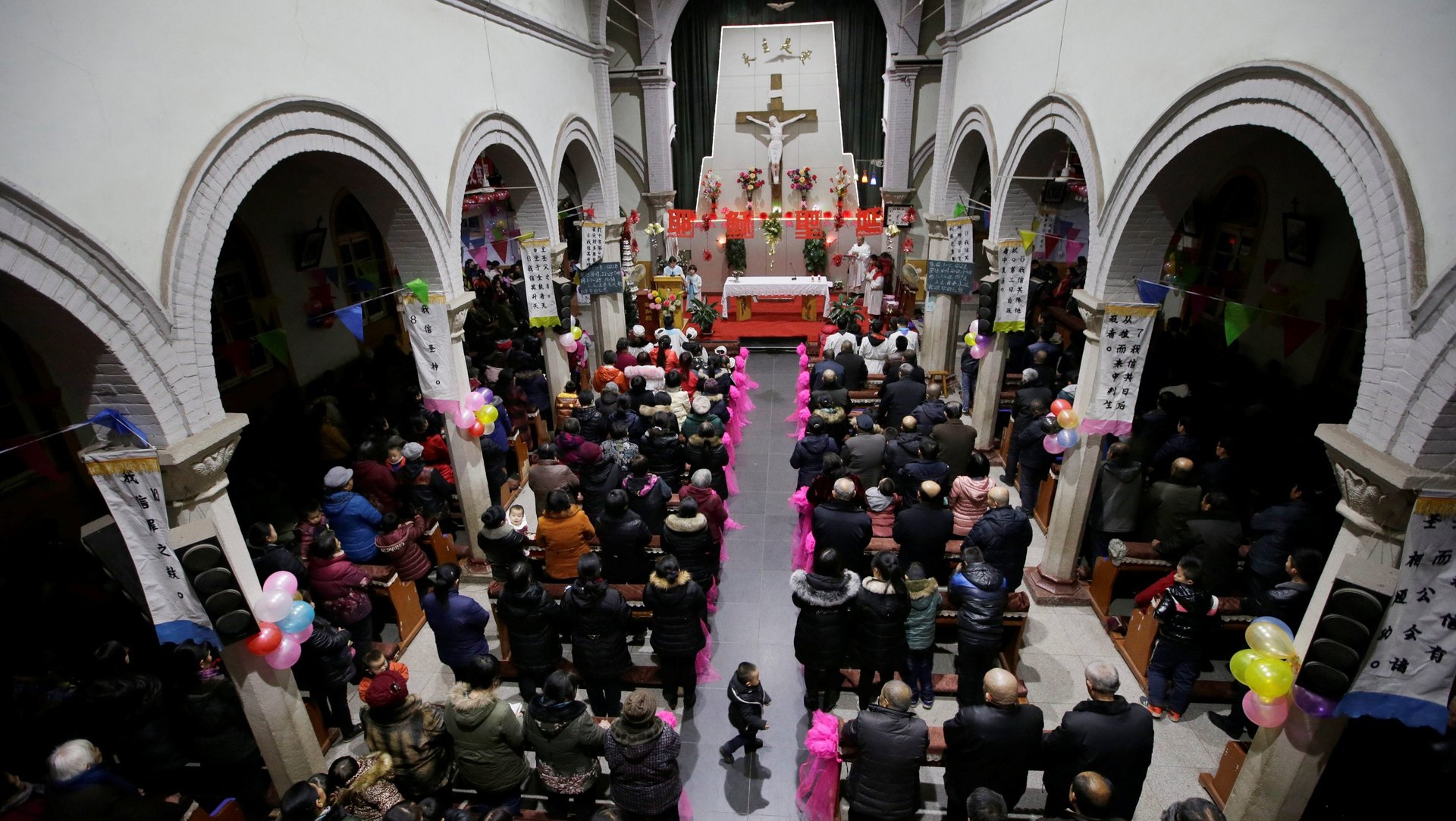Hong Kong’s cardinal on a Vatican-China deal: “It is clear which path the Church ought to take”
An article by Hong Kong’s cardinal John Tong is reviving speculation that China and the Vatican will re-establish relations, despite a fundamental disagreement between the two sides over Catholic doctrine.


An article by Hong Kong’s cardinal John Tong is reviving speculation that China and the Vatican will re-establish relations, despite a fundamental disagreement between the two sides over Catholic doctrine.
Efforts to reach an accord had seemed doomed just a few weeks ago, in wake of China’s ordination of bishops without Holy See approval. But Tong, writing in Hong Kong’s Sunday Examiner, a Catholic weekly, suggests that the two sides might be close to a “milestone agreement.”
Tong is seen as belonging to a Vatican faction that is friendlier with Beijing than his predecessor. Cardinal Joseph Zen, who retired in 2009, is still described as “the conscience of Hong Kong” and strongly opposes a Vatican-China agreement.
Previous attempts at rapprochement raised concerns among Catholics in China and abroad, who are fearful that the eagerness of Pope Francis to obtain the right of opening a nunciature—the Vatican’s official diplomatic mission —in Beijing would mean that the ongoing anti-religious repression in the country would be rewarded with full diplomatic recognition, without any concessions having been made by China as far as freedom of religion is concerned, and that the Vatican would lose its only current leverage. At present, the Vatican has a full-fledged nunciature in Taipei, and a diocese in Hong Kong and Macao.
As Tong describes in his article, the “core problem” between the two sides remains the appointment of bishops. In China, these are officially named and appointed by the Chinese Catholic Patriotic Association (CCPA), a state organization that does not recognize the supreme authority of the Pope in this or other ecclesiastical matters. It is staffed by a number of Communist Party members—who are sworn to atheism. Catholic doctrine, meanwhile, requires bishops to be named and appointed by the Vatican.
Tong writes of a “preliminary consensus” that would allow the pope to have “the final word over the worthiness and suitability of an episcopal candidate” that has been proposed by the CCPA. This, according to Tong, would give the CCPA a novel function as a sort of advisory body to the Vatican.
However, Tong, who claims to be offering only “his views” on the issue in order to clarify some of the progress being made, says that an agreement on the thorny issue of the bishops would not signal that all other problems between the Vatican and Beijing have been cleared. First among the other concerns is the role of the CCPA, which, by its very existence, acts as a parallel church self-styled as “Catholic,” even if it does not operate under the Vatican’s authority. Also, Tong says, the Church would need to resolve the issue of 30 bishops not recognized by the Vatican but nominated by the CCPA, seven of whom have even been excommunicated for having lived outside of Canon Law (some are reportedly married with children, or even have mistresses).
Another recent development that showed the eagerness of the Vatican authorities to show friendliness toward Beijing was the Holy See’s decision to invite the Chinese former deputy health minister, Huang Jiefu, to a two-day conference in Rome on organ trafficking and transplant tourism. Huang’s invitation proved highly controversial, as China has long relied on the organs of executed convicts for its transplant program, and continues doing so in spite of its promise to discontinue the practice. The controversy, once more, centers around the risk of giving legitimacy to China’s worst human rights violations, versus the hope that dialogue might be conducive to progress.
Tong, who does not mention the Vatican’s conference in his article, concludes his 4,000-word essay by saying that the Church is at a crossroads.
The choices in front of us are either to embrace the essential freedom now and become an imperfect, but true Church, then struggle for complete freedom in the hope of moving towards a perfect Church, or we give up essential freedom and have nothing at all, and then wait for complete freedom—but no one knows when this will ever happen. In fact, the moral principle of the Church teaches us to choose the lesser of two evils. Therefore, under the teaching of the principle of healthy realism that Pope Francis teaches us, it is clear which path the Catholic Church in China ought to take.
So far, however, neither Beijing nor the Vatican have given indications that a deal has already been stipulated, or that an agreement is on the verge of being reached.